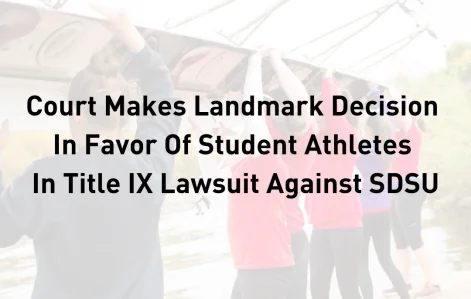The federal Family and Medical Leave Act (FMLA) traditionally gives covered employees the right to take up to 12 weeks of unpaid leave to care for a family member such as a spouse, child, or parent, if the family member has a serious health condition. 29 U.S.C. § 2612(a)(1)(C). What qualifies as “caring for” a family member is not always clear, however. As we reported in 2014, in a win for employees, the Seventh Circuit Court of Appeals in Ballard v. Chicago Park Dist., 741 F.3d 838, 843 (7th Cir. 2014), ruled that taking a terminally ill loved one on an end-of-life trip qualifies as “caring for” a family member, and accordingly, is protected leave under the FMLA.
Beverly Ballard was fired from her job with the Chicago Park District after she took her terminally ill mother on an end-of-life trip to Las Vegas. Ballard v. Chicago Park Dist., 900 F. Supp. 2d 804 (N.D. Ill. 2012). It was undisputed that Ballard cared for her mother at their home in Chicago. Ballard was her mother’s primary caregiver, and was responsible for feeding and bathing her mother, as well as administering her medication.
In the district court proceedings, Defendant Chicago Park District argued that the FMLA did not protect Ballard’s trip to Las Vegas because the trip was not related to an ongoing course of medical treatment. The district court disagreed, denying defendant’s motion for summary judgment, and finding that “[s]o long as the employee provides ‘care’ to the family member, where the care takes place has no bearing on whether the employee receives FMLA protections.”
The Seventh Circuit affirmed the district court’s decision. The Seventh Circuit noted that on its face, the FMLA provision at issue refers to “care” of a family member, and not “treatment.” Furthermore, the Seventh Circuit held that the FMLA does not restrict care of a family member to care given at home. The Court found that Ballard continued to provide her mother with her basic medical, hygienic, and nutritional needs while visiting Las Vegas, and noted that due to an emergency at the hotel,
Ballard was required to find her mother another source of insulin and pain medication. Accordingly, the FMLA protected Ballard’s trip to Las Vegas.
Ballard remains one of the most useful decisions to support the proposition that “care” leave pursuant to the FMLA is not limited to care provided while seeking medical treatment so long as the employee is providing some form of active physical care (i.e. medical, hygienic, nutritional) related to a family member’s serious health condition. It also remains strong authority for the proposition that such care, to qualify under the FMLA, need not be geographically limited to one’s home or doctor’s office. In other words, taking FMLA leave to “care” for a loved one does not mean you both go into lockdown in your home, and only see the light of day when you need to go to the doctor’s office.
A recent decision (from a district court within the Fourth Circuit) again highlights the fact that the FMLA has no geographic limits. In Meyer v. Town of Wake Forest, Case No. 5:16-CV-348-FL, 2018 U.S. Dist. LEXIS 167130 (E.D.N.C. Sept. 28, 2018), the plaintiff had FMLA leave approved both to care for his spouse’s serious health condition, and also to care for their newborn baby. During his FMLA leave, among other things, Plaintiff took his wife and child on trips to the beach and the state fair. The employer argued FMLA leave does not cover these trips, i.e. that there is a geographical limitation to FMLA protected activities. Id. at *20. The Court also noted the absence of any geographical limitation in the text of the FMLA on activities when caring for a spouse with a serious health condition. The Meyer court, however, declined to resolve the issue formally, noting that Plaintiff had also been approved to care for his newborn (who was also on the trips), and that such leave is clearly not geographically restricted.
Even after Ballard and Meyer, however, employees should still give careful thought before attempting to combine FMLA leave to care for a relative with travel. For example, in a recent case in the Northern District of California, an employee was not even able to take FMLA for the time in which the employee traveled from work to the location of the ill relative. The rationale for the court’s decision was that, during the drive, the employee was not “caring” for the relative. See Aguirre v. California,
Case No. 16-cv-05564-HSG, 2019 U.S. Dist. LEXIS 129752, at *10-*11 (N.D. Cal. Aug. 2, 2019).
So, hearkening back to Ballard, employees should be aware that if you take your ill relative to Las Vegas, you may still face a challenge by your employer if you are found spending large portions of the day alone on the casino floor, or driving solo up and down the Strip.
To schedule your free initial consultation, contact us online or call (619) 342-8000 today!





